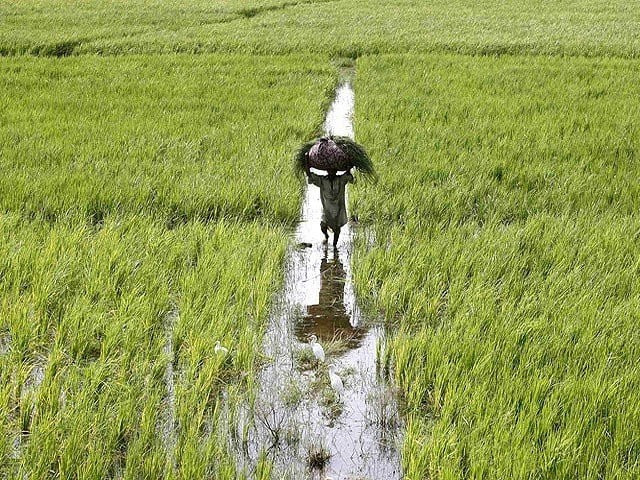Sowing suffers delay as water shortage persists
Farmers in Sindh are sowing paddy while growers in Punjab have started harvesting rice

Farmers have voiced concern over persistent water shortage in some areas of Sindh especially tail end regions due to mismanagement in storing of the commodity.
In a meeting at Sindh Abadgar Board (SAB) on Tuesday, growers from different districts highlighted problems pertaining to water supply in their respective areas despite the fact that surplus water is available in the system. “It is observed that affected areas are either at the tail end of the system or there are issues with water management because of which it is unable to reach those areas,” said SAB Senior Vice President Mahmood Nawaz Shah according to a statement. “This mismanagement has completely destroyed crop pattern of Sindh and delayed sowing of rice by months.”
Some of the sub-divisions facing severe deficit of water supply include Kadhan and Qazia on Akram Wah, Badin and sub-divisions of Hala Char Minor and Latif Minor on Rohri Canal. He lamented that supply of water to Sindh was delayed and as a result, farmers in the province are still sowing paddy while growers in some areas of Punjab have started harvesting rice.
“The season of sowing of rice has already passed and if water is not provided to the deficient areas, paddy cultivation will be severely affected,” he said. “Rohri and Nara canal are the backbone of the irrigation system and agriculture in Sindh, however, water withdrawal stood at around 13,000 cusecs in each canal compared to 15,000 cusecs in previous years.”
In comments to The Express Tribune, Sindh Chamber of Agriculture President Miran Mohammed Shah remarked that cotton output in the province has been on a steady decline primarily due to water shortage. Similarly, orchards of mangoes, bananas and other fruits are also impacted because they require persistent supply of water.
“Now, there is no water available for sugarcane, which is a water intensive crop,” he said. “It is sown in September every year and harvested in October and November.” He called for proper management of irrigation system in Sindh from the provincial government and stressed that supply of water must be ensured to the distributaries to evade overflowing of canals and guarantee that water reaches tail end regions.
Published in The Express Tribune, August 11th, 2021.
Like Business on Facebook, follow @TribuneBiz on Twitter to stay informed and join in the conversation.



















COMMENTS
Comments are moderated and generally will be posted if they are on-topic and not abusive.
For more information, please see our Comments FAQ